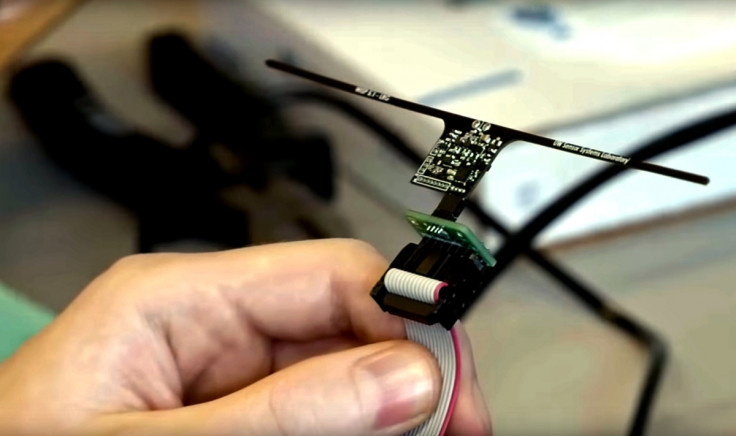Battery-free reprogrammable computer chip that makes electricity from thin air could be future of IoT

Electrical engineers from University of Washington and Delft University of Technology (TU Delft) have developed a new type of computer chip that does not require a battery or any external power source. Instead, it sucks radio waves out of the air and converts them into electricity.
The Wireless Identification and Sensing Platform (WISP) is a combination sensor and computing chip that uses a standard off-the-shelf Radio Frequency Identification (RFID) reader to suck in radio waves and convert them into power. Typically, such readers are used to identify RFID tags injected into pets or track inventory in a warehouse or parts on a factory assembly line.
WISP isn't designed to be the next high-tech computer – it has a clock speed that only matches the processor in a Fitbit wristband, as well as some temperature sensors and accelerometers. However, it could transform the Internet of Things (IoT) as it is even more low maintenance than Bluetooth Low Energy sensor chips being used today.
"It's not going to run a video game, but it can track sensor data, do some minimal processing tasks, and communicate with the outside world," Aaron Parks, a researcher at the University of Washington Sensor Lab, told Fast Company.
WISP can now be reprogrammed wirelessly
What makes WISP so interesting is, besides the fact that it generates its own power, that researchers have worked out how to get the WISP to be reprogrammed wirelessly, and this is something that other battery-free chips that suck power from passing television waves and mobile base station signals currently cannot do.
This means that if WISPs were fitted to numerous IoT smart things out in the field, such as to monitor progress on an oil rig, and the devices needed to be updated to fix a bug or to utilise new functions, the commands could be instantly sent out rather than someone having to go to all the devices and plug them one by one into a laptop to update their firmware.
The researchers say that WISP could also be really useful for healthcare if used in implantable devices to monitor patients' health, since the power source never needs to be replaced, and even in smartphones, a battery-free computer chip could be included that sends an emergency message whenever the smartphone's battery goes dead.
"So far WISP required cables to reprogramme it, nullifying the advantage of battery-less-ness. Therefore, we present Wisent, a protocol that allows WISP to be reprogrammed wirelessly," said Dr Przemysław Pawełczak, assistant professor at the Embedded Software group at TU Delft in the Netherlands. "Our vision is to have truly wirelessly reprogrammable software-defined battery-less computers wherever and whenever we want."
© Copyright IBTimes 2025. All rights reserved.






















